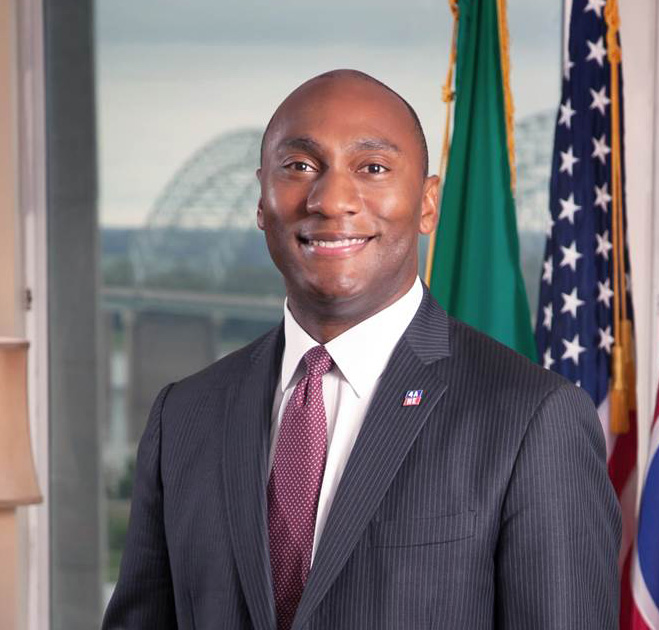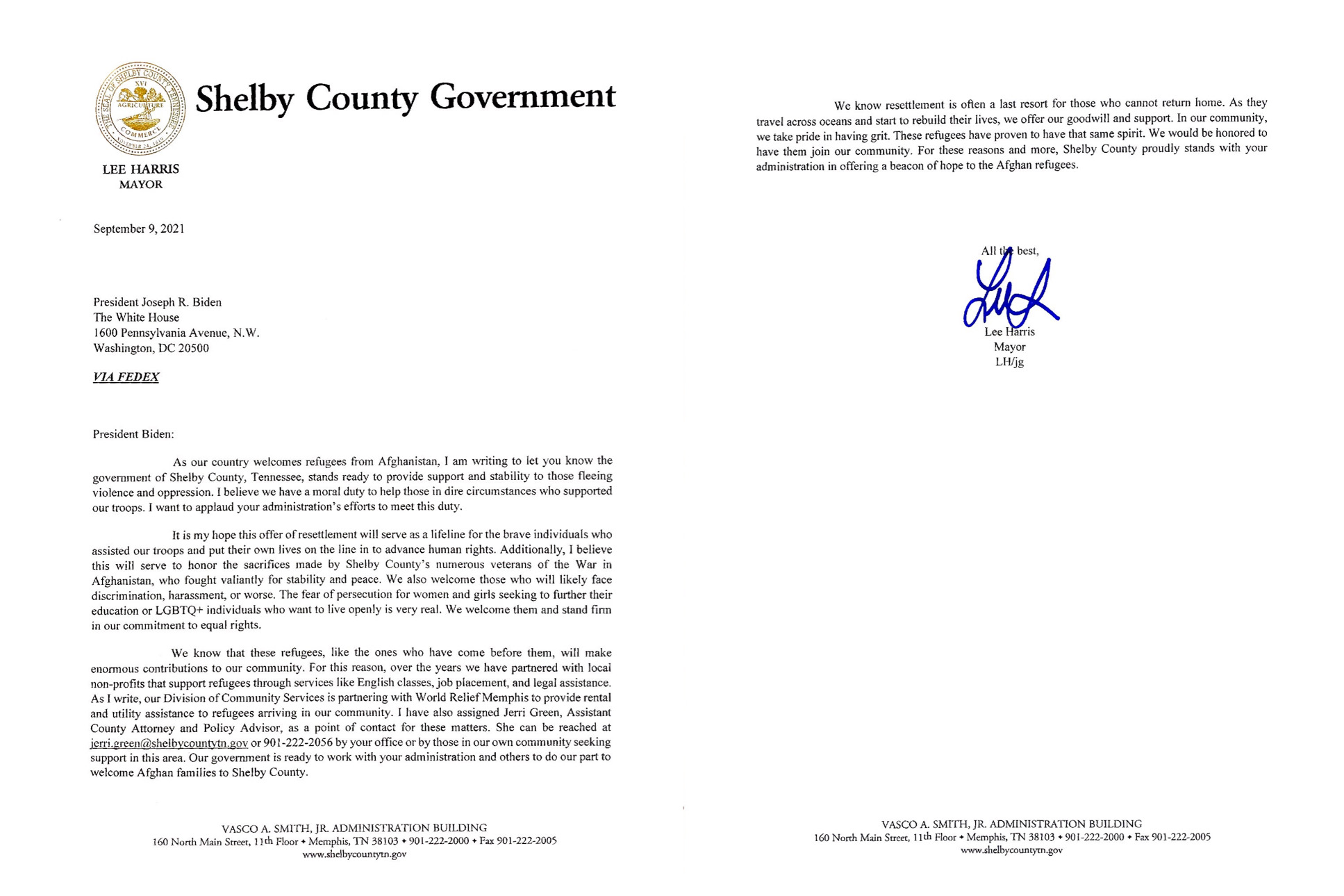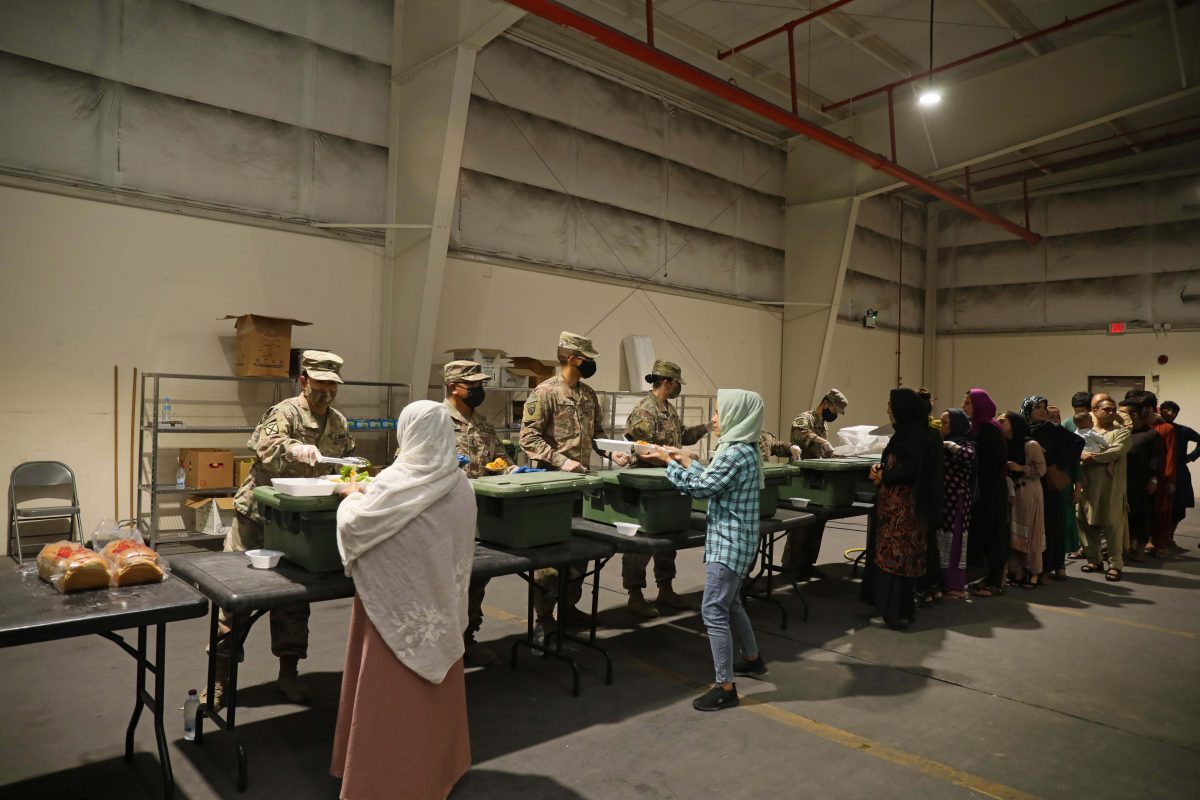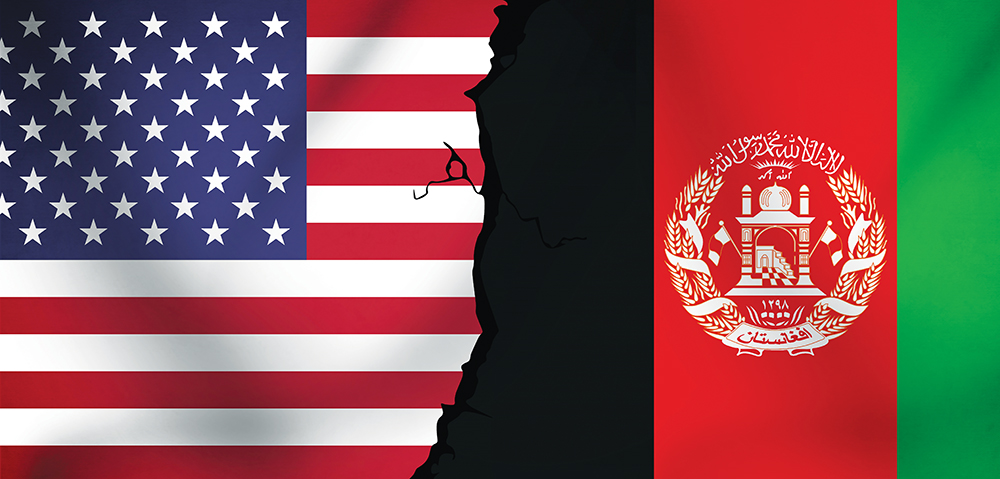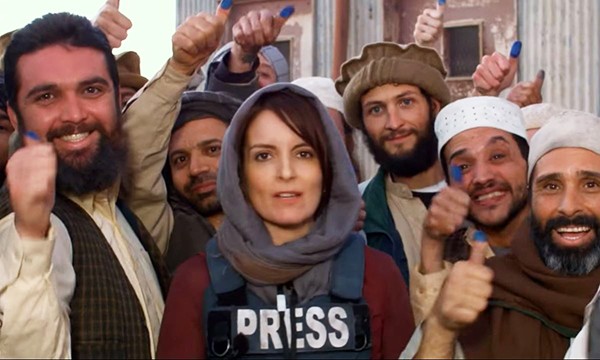On September 9th, Mayor Jim Strickland announced that a small number of Afghans — maybe 36 — would be welcome in Memphis; some would be resettled here under a special visa arrangement, eligible for federal funding. Others would have to apply for political asylum and appear, sometime in the future, before a federal immigration judge who will determine their eligibility/status under U.S. asylum laws.
The images this past August of tens of thousands fleeing Afghanistan for “anywhere in the world” were shocking. They reminded those of us of a certain age of the Fall of Saigon in 1975. Many Vietnamese were resettled in Memphis — leading to a small but thriving Vietnamese community at Cleveland and Madison here in Midtown. More robust Vietnamese communities developed in Los Angeles and New Orleans.
More recently, Haiti. The images last month of white men on horseback pushing back dark-skinned Haitian people as they tried to cross from Mexico to the United States were disturbing. But not any more disturbing than the images we “don’t” see of the many brown-skinned people who die of heat stroke, etc. in the Sonoran Desert while attempting to enter the USA. Last year, 113 people died trying to cross into the United States at the southern border. Between 2001 and 2017, 2,833 human remains were recovered in Southern Arizona — 40 percent of those persons have never been identified.
We have, it seems to us, a moral responsibility to help the people of Haiti. What we’ve done is deported 2,000 Haitians back to a Haiti they barely recognize. We’ve admitted about 12,000 into the U.S. to stay with relatives until their asylum petitions can be heard by a judge. The Biden administration has extended Temporary Protected Status (TPS) for Haitians who arrived in the U.S. before July 29th of this year. TPS is offered to people from certain nations — nations that are too unstable or overwhelmed due to political or environmental catastrophe — to receive deportees.
Haiti has witnessed all of the above. First, there was the devastating 2010 earthquake that measured 7.0 on the Richter scale and struck 14 miles from the capital city, killing more than 100,000 and leveling a quarter of a million structures. Then, political instability leading to the assassination of the sitting president of Haiti this past spring, followed by hurricanes and another earthquake, measuring 7.2, on August 14th.
Haitian nationals have been living throughout South America and Mexico since 2010 (and earlier). Many were employed in Brazil, helping to build stadiums and infrastructure for the 2016 Summer Olympics; some headed to Chile where they were able to find work, but both countries’ economies contracted, and Haitians went from helpful labor force to non-citizen nuisance. Their only hope? The United States.
They assembled at Del Rio — a town about 150 miles west of San Antonio, Texas, and the reaction to so many people huddled under a bridge was hysterical and histrionic. Both the media and politicians stayed with the story — both hoping to gain viewership and political points.
Our nation can certainly absorb 12,000 Haitian nationals. Germany alone, with far less space than the USA, took in more than a million Syrian refugees during the past decade.
We can probably take in 1,000 here in Memphis. Why not try? It will cost some money to resettle, re-train, and set up housing, but remember, we spent about two trillion dollars during a 20-year war in Afghanistan that failed to achieve its stated objective. Even before the U.S. left the nation, the country slipped back into Taliban control.
We would spend far less than two trillion to support our Haitian brothers and sisters, and we have a responsibility to help this Caribbean nation plagued by natural catastrophe, venial and corrupt politicians, and a United States whose meddling often results in troubling consequences. Don’t forget the United States’ engineering of the exit of Haiti’s then-President Jean-Bertrand Aristide as a violent coup unfolded in 2004.
Memphis has a history of welcoming neighbors and successfully resettling refugees. Now is the time to act to welcome our brothers and sisters from Haiti; they need our help and our city can always embrace their talents and energy. Building human capacity — by investing in refugees — makes more sense than throwing trillions of dollars at unpleasant, unwinnable wars.
Bryce Ashby is a Memphis-based attorney and the board chair of Latino Memphis. Michael LaRosa teaches history at Rhodes College.

